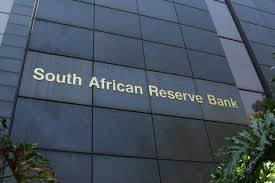Introduction
The South African Reserve Bank (SARB) plays a critical role in the nation’s economy, serving as the central bank of South Africa. Established in 1921, its primary function is to maintain price stability in the interest of sustaining economic growth and financial stability. With current global economic challenges, understanding the role and actions of the SARB is more important than ever for both investors and consumers alike.
Functions of the South African Reserve Bank
The SARB is responsible for several key functions, including monetary policy formulation, regulation of the banking sector, and management of the country’s currency. The bank is tasked with controlling inflation and securing the value of the rand, South Africa’s currency. This is achieved through the Monetary Policy Committee (MPC), which meets regularly to review economic conditions and adjust interest rates accordingly.
In recent months, the SARB has faced a challenging environment characterized by global inflationary pressures, rising food prices, and the ongoing effects of the COVID-19 pandemic. As a result, the MPC has had to navigate complex scenarios to make informed decisions on interest rates, thus influencing economic activity within the country.
Recent Developments
In its latest meeting, the SARB decided to maintain the repo rate at 6.25%, remaining cautious amidst unpredictable global markets. Analysts observed the bank’s dual focus: curbing inflation while not stifling economic growth. Since the beginning of 2023, the SARB has raised interest rates several times in response to increasing inflation, which reached around 6.5% in September 2023, above the bank’s target band of 3-6%.
Conclusion
The South African Reserve Bank remains a key player in shaping the economic landscape of South Africa. As global economic conditions evolve, its decisions will continue to have far-reaching implications for inflation, employment, and overall economic stability. For citizens and businesses, staying informed about the SARB’s policies and economic indicators will be crucial for navigating financial decisions in an ever-changing environment. In a world where economic shocks can occur suddenly, understanding the mechanisms of the SARB will allow South Africans to better prepare for the future.
